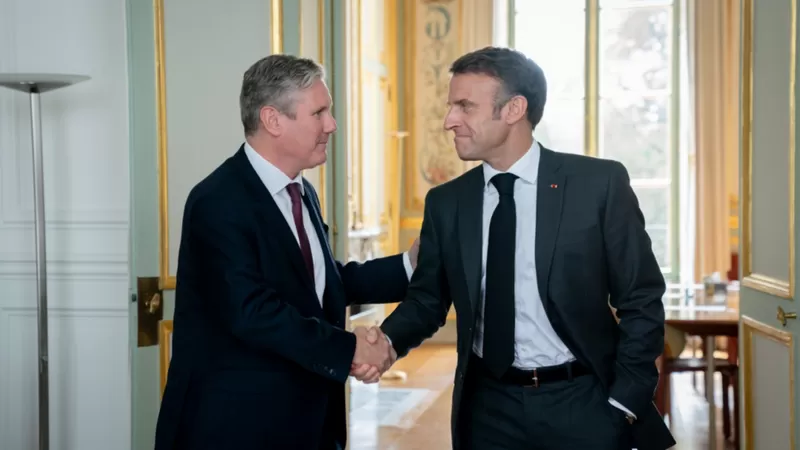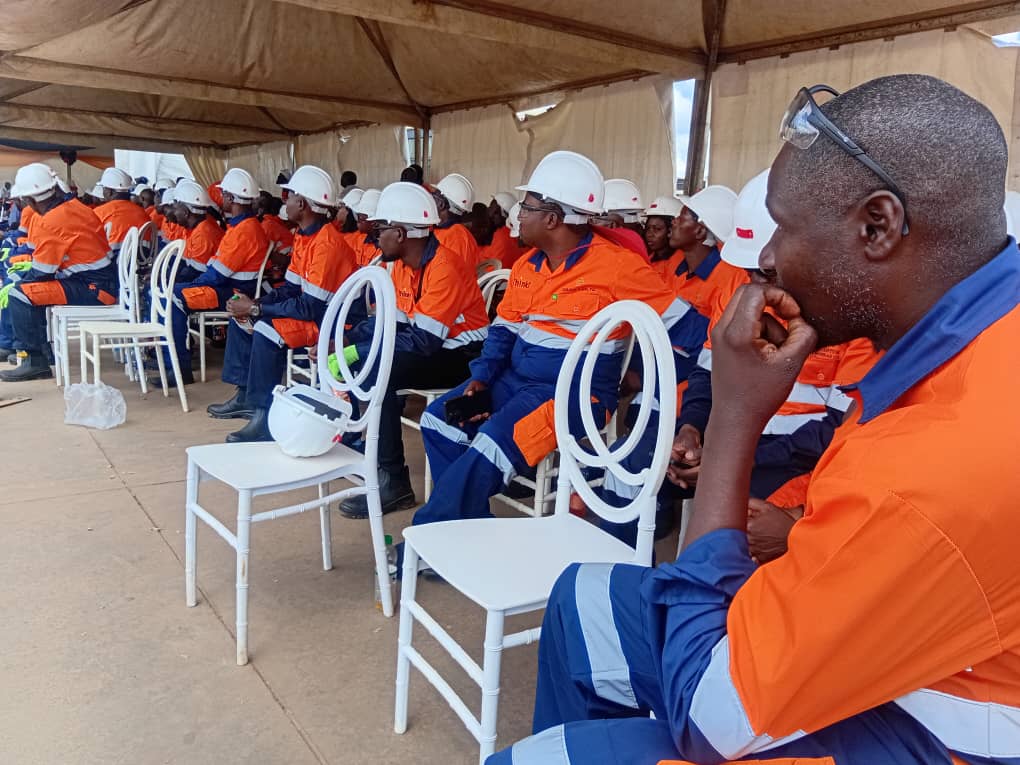With a general election likely next year in the UK, Brexit seems back on the political agenda at home. But not in Brussels.
Opposition leader Keir Starmer (one assumes consciously) this week declared he would seek a “much better” deal with the EU should he become prime minister.
He then embarked on a whirlwind tour of the Hague and Paris, including a high-profile, albeit brief, meeting with President Emmanuel Macron.
Mr Starmer’s European trip coincided on Tuesday with the publication, commissioned by the French and the German governments, of a think tank paper on EU reform.
It included mention of the UK as a possible future “associate member”, making financial contributions in exchange for a closer economic relationship.
Suddenly MPs were arguing once again about whether Brexit was the right or wrong choice for Britain and what the EU associate membership “offer” from the EU meant.
Newspaper headlines sounded the alarm. One proclaimed a Franco-German “plot”, while another suggested it was Brussels’ attempt to entice the Labour Party to get closer to the EU again.
A separate theory I heard was that this was a post-Brexit “olive branch” from Brussels.
I put these hypotheses to diplomats from a range of EU countries.
Germany’s ambassador to the UK, Miguel Berger, had already taken to social media to temper the speculation. “The report of an independent group of experts… is a contribution about enlargement and reform, not on EU-UK relations,” he wrote.
Every EU figure I spoke to said the Franco-German academic paper had been commissioned by Paris and Berlin to suggest how to “future-proof” the EU and its institutions as it considers expanding to potentially include Ukraine, Moldova, Georgia and countries in the western Balkans.
The timing of publication was planned months ago, they said, to coincide with an EU meeting this week, as talks hot up about starting membership negotiations with Ukraine by the end of the year.
“To think this paper is in any way connected with Keir Starmer’s visit or even King Charles’ visit to France is fanciful,” one high-level diplomat told me. “Nothing to do with reality. We’re having a completely different conversation.”
“It’s deja vu – like the old days of Brexit negotiations,” said another. “UK politicians are talking to themselves, ignoring what we’re actually saying in the EU.”
“The EU is over-interpreted in Westminster,” insisted a prominent EU figure.
“We are hopeful about signs of improvement in bilateral relations, yes. But we don’t talk or think about the UK anymore on a daily basis. Our focus has shifted elsewhere (since Brexit).”
It’s true, the main focus of the paper is on how the EU can expand its number of member states and still function – especially considering the awkwardness that potential new members, such as Ukraine, would likely swallow up many of the EU subsidies that existing members (including Poland, Romania and Hungary) currently benefit from








